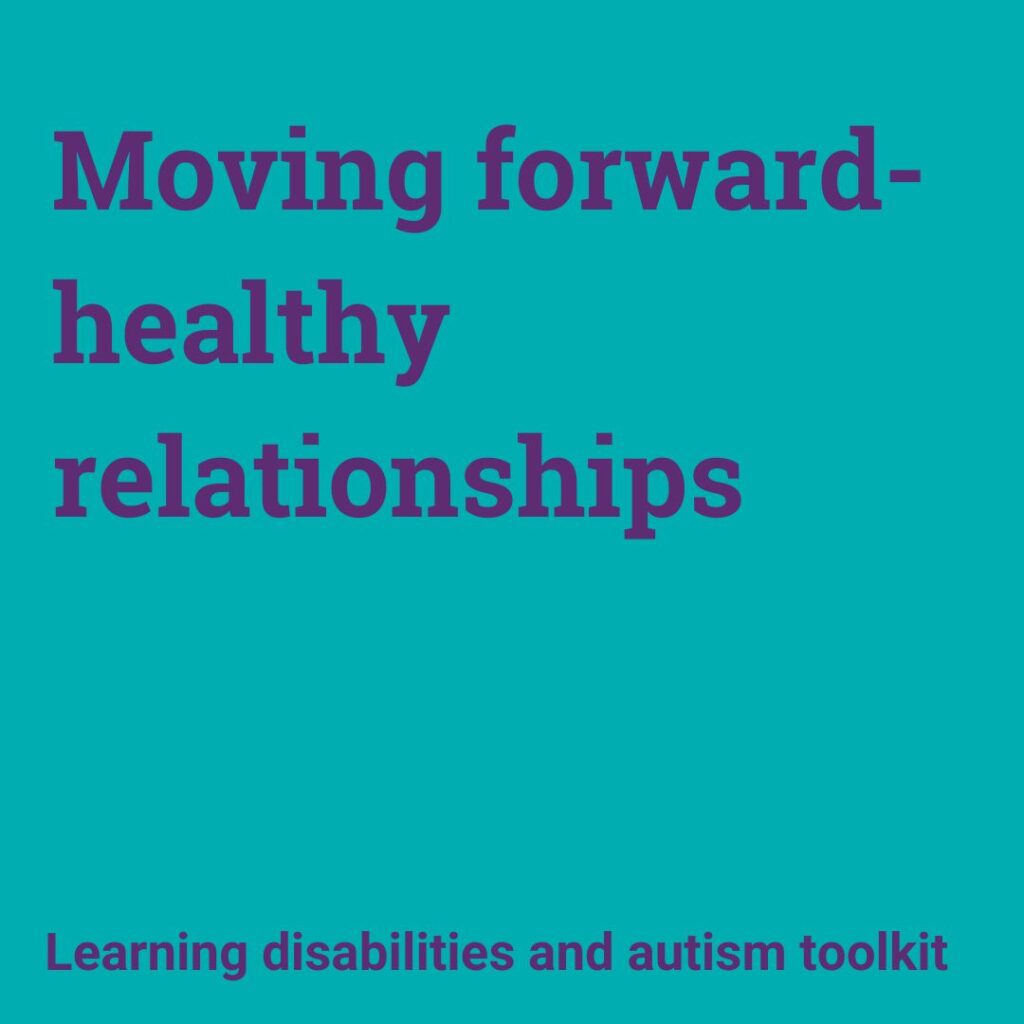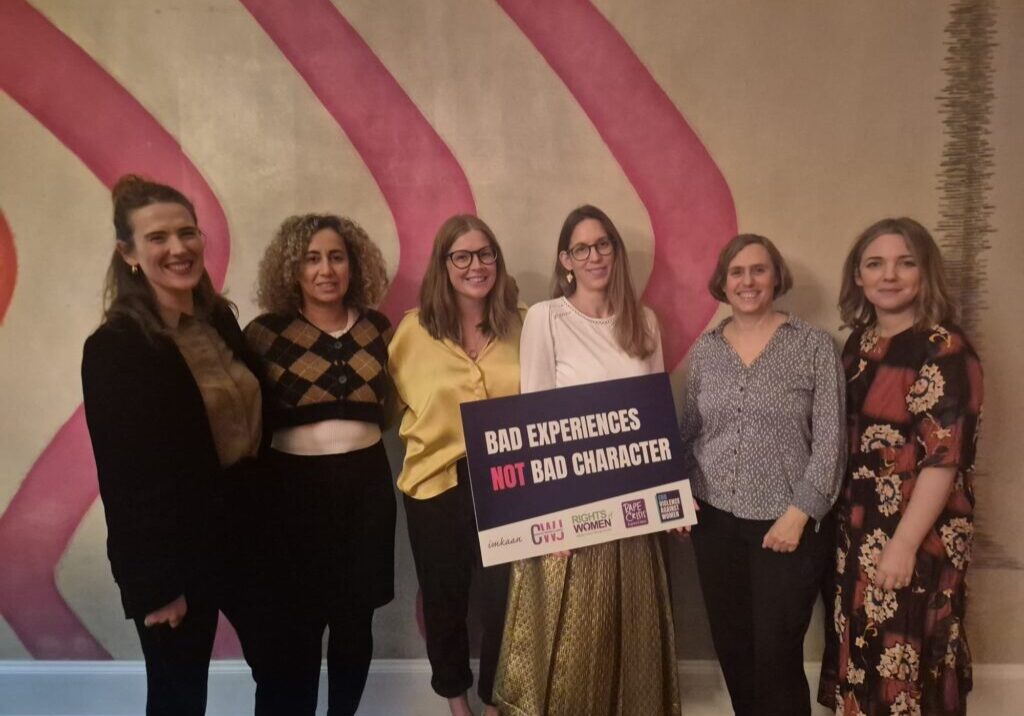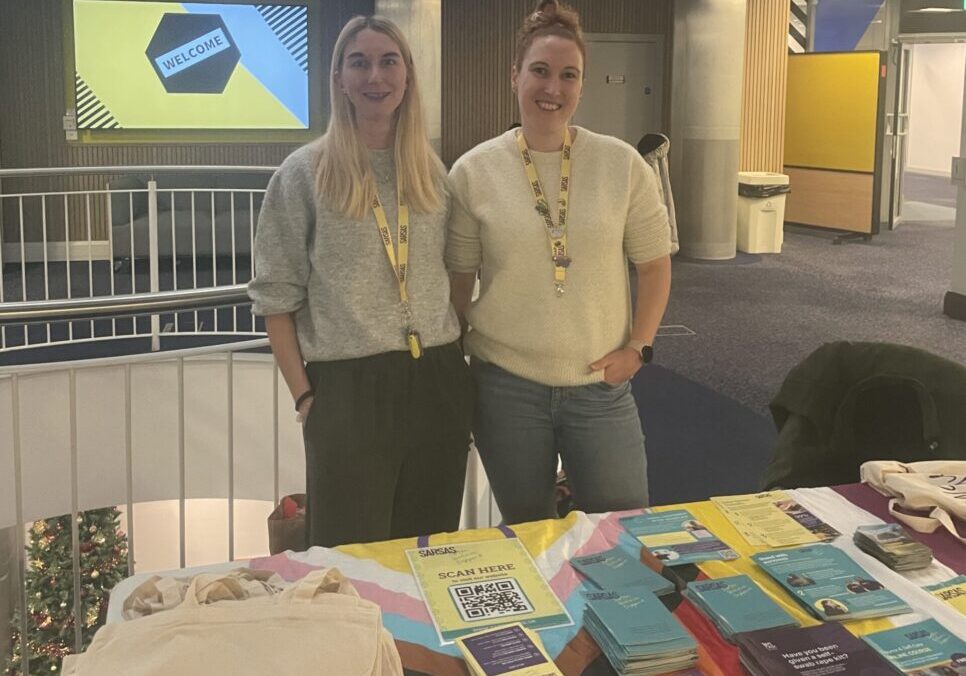
Healthy relationships
Everyone has the right to relationships. It's important to know how to support the people you work with to have safe and healthy relationships.
Healing from the devastating impact of sexual violence takes time. It is common to feel isolated, lacking in self-worth, afraid to trust others, and fear entering new relationships.
Having a support network can provide powerful protection against the effects of trauma, and traumatised people recover better in the context of a relationship (Care Quality Commission, 2020).
We can empower people to have safe and healthy relationships by supporting them to understand their sexual rights and recognise the signs of healthy and unhealthy relationships.
The right to have sex and relationships
The Universal Declaration of Human Rights states that people with disabilities have the right to make their own decisions about sex and relationships. Despite this Mencap reports that only 3% of people with learning disabilities live with a long-term partner. (Emerson, E., Malam, S., Davies, I. and Spencer, K. (2005) Adults with Learning Disabilities in England 2003/4).
It is important that support providers create a culture that supports proactive conversations about relationships and sexuality. Support staff should feel comfortable to have open and honest conversations with the people they support about sex, healthy relationships, and sexuality.
Avoiding discussions about sex and relationships can lead people to think sex is not something that should be talked about, this can mean they may not make disclosure of sexual violence.
We can feel patronised or treated like a child. Please don’t think we are incapable of or not wanting relationships.
SARSAS Advisory Group member
The Care Quality Commission (CQC) have provided guidance on personal relationships and sexual safety for providers, which sets out expectations of approaches and actions that will serve to protect whilst also empowering individuals to learn about and express their sexual choices.
Supported Loving Network’s toolkit contains a series of guides and useful resources on how to support people with issues related to sexuality and relationships.
Building a sense of identity and empowerment
Many victim-survivors of sexual violence can experience a loss of confidence, feelings of low self-worth and shame. Additionally, some autistic people and people with learning disabilities may have a limited understanding of their rights and the choices they can make about how they would like to be treated in relationships.
Support tips:
Look together at the Bill of Rights and discuss:
- What does the person think about the rights?
- What might they do to make sure they give themselves these rights?
Some people can find it difficult to believe that they have these rights, they can also feel frustrated and angry that they have not had these rights. It can take time, practise and support to implement the rights. - Empower people through identifying what they value in themselves. This could be done by looking at strengths and qualities. Make a list of:
- Discuss consent and how to give and withdraw consent.
Widening social networks
Remember that the thought of attending a group or starting a new friendship or relationship can be a daunting prospect. Give people the time and information they need to make decisions about what feels right for them.
Suggestions for widening social networks:
- befriending services run by charities
- helplines
- clubs, Groups and Exercise classes, Dog buddies
- educational programmes and courses on understanding domestic violence, consent, healthy relationships
- peer support groups
- local dating agencies, and social groups.













